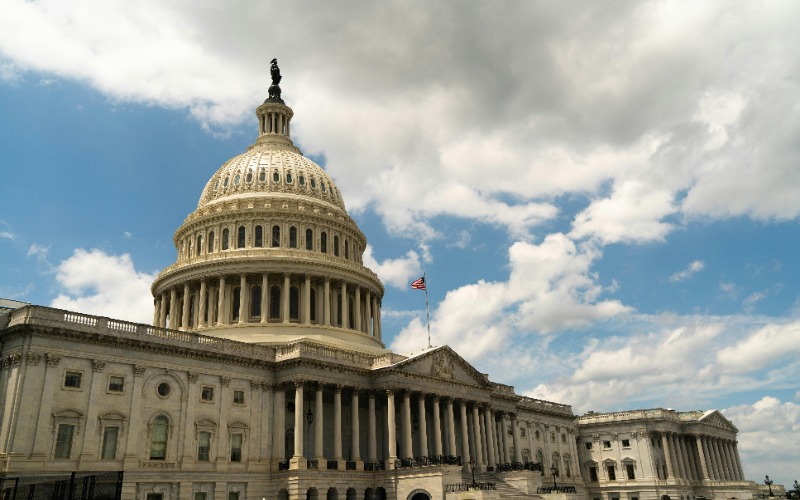Innovation has always been a key driver of economic growth, productivity, and human progress toward better and healthier lives. The 2023 Global Innovation Index (the Index) prepared by the World Intellectual Property Organization (WIPO) has reported that several factors influence each of the leading innovative countries in the world. These factors include well-developed R&D networks, cooperation between educational institutions and industry, financial networks for investors, manufacturing infrastructure, regulatory policies encouraging investments, and strong intellectual property laws and procedures. It is then odd that recent U.S. government proposals and legislative inaction appear to work against these very factors.
The United States ranked as the third most innovative country on the Index (behind Switzerland and Sweden), with its highest scores in venture capital received and global corporate R&D investment. Recent government initiatives, if enacted, however, promise to add challenges to several innovation-influencing factors. The most problematic proposals from the past year include a federal proposal to ban non-compete agreements and other restrictive covenants and the consideration of exercising potential “March-In” rights to require licensing of technology developed with federal funding.
These proposed actions will hurt innovation throughout the country by making protecting confidential/proprietary information and trade secrets significantly more difficult. The failure to restore full expensing for R&D and ending the five-year amortization requirement for such expenses—effectively increasing the cost of innovation—will further negatively impact innovation and economic growth.
The Federal Trade Commission’s proposed ban on non-compete agreements and other restrictive covenants was allegedly targeted at abuses of these agreements to promote greater labor mobility and empower workers to explore better opportunities. However, there is general concern that a complete ban on these agreements could stifle innovation in industries where they have traditionally been used to protect intellectual property, such as trade secrets.
Since its publishing in early 2023, the FTC’s proposal has caused much consternation and received thousands of comments. While many have noted that there will be legal and practical challenges to the implementation and enforcement of such a ban, both supporters and opponents agree that some balancing between workers’ rights and fostering innovation will be required.
Notably, the FTC proposal appears to have prompted broader conversations about the role of restrictive covenants in today’s economy and may have encouraged analogous activity at the state level. Several states have already taken steps to restrict the use of non-compete agreements, citing concerns about their negative impact on labor mobility. California, for example, has enacted laws to restrict the enforceability of non-competes in certain industries or for certain types of workers. Some states are considering similar legislation, while others, such as Massachusetts, have maintained the effectiveness of non-competes by balancing the interests of employers and employees and by recognizing the importance of protecting trade secrets and proprietary information.
Another proposal was set out late last year by the U.S. Department of Commerce’s National Institute of Standards and Technology (NIST), which released for public comment a framework for federal government agencies to consider the potential exercise of March-In Rights. This proposal presents a significant shift in the landscape of intellectual property regulation, particularly concerning federally funded research, as these rights have never been exercised during the more than 40-year history of the Bayh-Dole Act (which first established these rights and enabled commercialization of federally funded R&D).
March-In Rights, as outlined by NIST, would grant the government the authority to intervene in cases where patented technologies resulting from federally funded research were not being made available to the public on “reasonable terms,” including pricing. This ambiguity concerning the potential for control based on “unreasonable pricing” is a departure from the established understanding that these rights were not to be used to influence or regulate market pricing. In the thousands of public comments received, many note that the government’s potential exercise of March-In Rights would have a negligible effect on pricing while stifling innovation. In addition, the exercise likely would have a chilling effect on the willingness of prospective licensees and VCs to participate in the commercialization of federally sponsored research.
The negative implications for innovation hopefully are not lost on those who favor the exercise of March-In Rights. It would appear to undermine incentives for private companies to invest in research and development, particularly where possible government intervention introduces uncertainty regarding the exclusivity of intellectual property rights and the ability of companies to retain their competitive advantage.
Another issue that could harm innovation is the government’s failure to extend the R&D tax credit, which has long been an important policy tool for encouraging businesses to invest in research and development activities. This tax credit is a dollar-for-dollar federal tax liability reduction that companies can take for approved domestic expenses, including product or process design and development. While full R&D expensing had been the standard for many years, beginning in 2022, businesses were required to amortize their R&D tax credit deductions over five years. Despite negotiations in Congress, no restoration of full expensing has occurred.
Without the restoration of full expensing, businesses face increased uncertainty and reduced incentives to undertake costly projects. This could result in diminished innovation, as companies may opt to scale back or postpone their research initiatives and, in turn, hinder the competitiveness of businesses worldwide.
Collectively, if enacted, the proposals to ban non-compete agreements and allowance for the exercise of the March-In Right and the failure to extend the R&D tax credit would detrimentally affect innovation and the economy. This would not only hamper the competitiveness of U.S. businesses, but these proposals also would negatively impact those factors that influence innovation, as identified in the Index, such as the importance of research and development and policies that encourage investments. Reconsideration of these initiatives is warranted if the U.S. wishes to maintain its position as a global leader in innovation and economic growth and its ability to create long-term prosperity.











